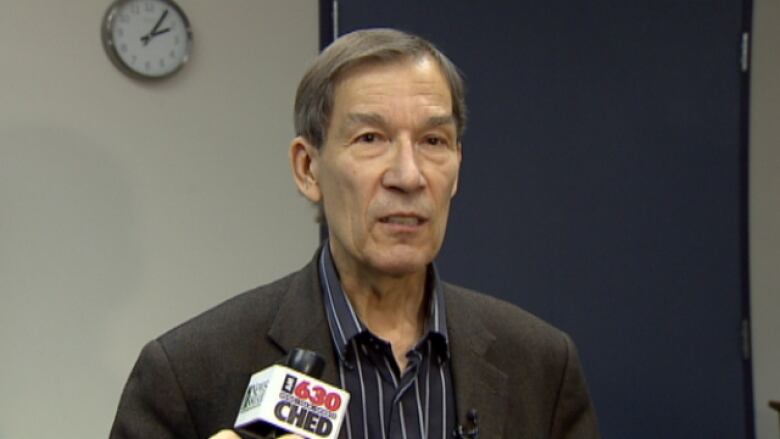Alberta Health Services staff fall short of flu vaccination targets ... again
Report says 63% of AHS employees were immunized during the last flu season, below the goal of 80%

A large number of Alberta Health Services employees still aren't getting vaccinated against influenza.
According to anAHSreport, 63 per centof health authorityemployees rolled up their sleeves to get the flu shot this season. That's well short of the goal of 80 per cent.
"It's a pretty big gap," said Craig Jenne, assistant professor of microbiology, immunology and infectious diseases at the University of Calgary. "From a science point of view, that's potentially a huge gap."
The concern, according to Jenne, is that infected healthcare workers can spread influenza, endangering high risk patients. Or, a sick patient could infecta large number of unvaccinated staff, placing unnecessary stress on the healthcare system.

Over the last four years, the immunization rates for AHS staff have remained relatively stable, hovering between 60and 64 per cent. That's well above the turnout seen a decade ago,when roughly half of healthcare workers would get the shot, Jennesaid.
"Across the country we're not bad," he said. "There are some provinces with higher compliance and those are ones that have put in more aggressive policies."
Mandatory Vaccination
One of those provinces is B.C., where healthcare workers are required to either be vaccinated or wear a mask in patient care areas throughout the flu season.
According to the B.C. Ministry of Health, vaccination rates for staff there have jumped from below 50 per centto between 75and 84 per centsince the policy was introduced in 2012.
To get rates much higher it's likely that we're going to have to do somethingdifferently.- Dr. Gerry Predy, senior medical officer of health, AHS
AHS has, so far, resisted adopting any kind of mandatory vaccination program.
Dr. Gerry Predy, senior medical officer of health with AHS, says while they haven't strongly advocated for it, seniorofficials have told the province improving compliance is unlikely unless something changes.

"We've presented them with the data, told them what we've done, compared ourselves to other places," said Predy."And [we've] said that as far as we're concerned the rates that we have now are probably as good as we're going to get within the current policy environment."
Alberta won't force healthcare workers to get the shot
But the province has no plans to change any time soon. In an email to CBC News, AHS spokespersonTim Kulaksaid for the next flu season, the department intends to stick with its voluntary program.
"We will continue with these efforts to encourage and increase health care worker immunization in the next influenza season," said Kulak.
Predysays that means health officials will keep pushing to get more employeesrolling up their sleeves through education, providing easy access to the vaccine and targeting facilities with particularly low rates.
"We want them to be as healthy as possible and not spread this to anybody whether they work in an office or, of course, on the frontlines," he said.












_(720p).jpg)


 OFFICIAL HD MUSIC VIDEO.jpg)
.jpg)



























































































